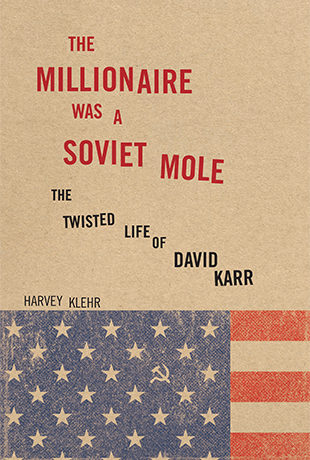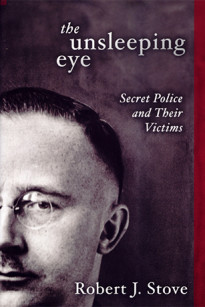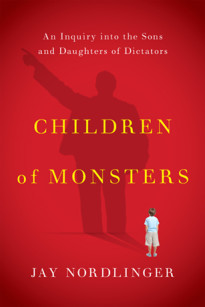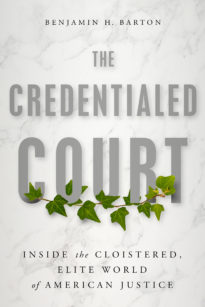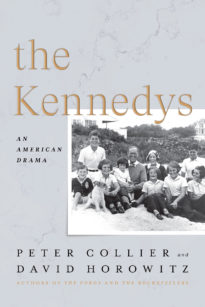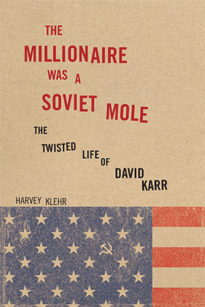David Karr was the Zelig of twentieth-century American life. He popped up at key moments and important places, next to such significant figures as Alan Cranston, Drew Pearson, Armand Hammer, John Tunney, and Sargent Shriver. He preoccupied J. Edgar Hoover, and hobnobbed with Aristotle Onassis, Henry Wallace, and political movers and shakers in France and Russia. His sister, who admitted “very intense” positive and negative feelings about him, thought he had an “uncanny yearning to be an insider because he was an outsider.”[i]
To more suspicious observers, Karr was a Svengali who bewitched and corrupted those who were sometimes naïve, sometimes greedy, who worked at newspapers, in public relations, or in government propaganda agencies. In this narrative, Karr later decided he could do more damage to American interests as a capitalist and used his access to business tycoons to weaken American companies and benefit the Soviet Union. Westbrook Pegler, the acerbic conservative newsman, devoted dozens of columns to denouncing his machinations, complaining that “planting plugs, intimidating Government officials by threats” and surveilling the unsuspecting were his “vocation.”[ii]
To still others, his life epitomizes a peculiarly American journey—that of constant reinvention of self, a young man on the make, ever alert for the main chance, and careless about the roadkill left behind in his meteoric, unprincipled rise from obscurity. Jack Anderson, who succeeded him as Drew Pearson’s chief “legman,” insisted that Karr was the model for How to Succeed in Business without Really Trying, the hit Broadway show that celebrated the astonishing rise of a window-washer up the corporate ladder to boss.[iii]
Some who knew Karr swore by his probity. Hervé Alphand, a French statesman, thought he was “always very nice and very kind. I never saw him offend anyone.” Arnold Forster, the former head of the Anti-Defamation League, called him “one of the good guys.” But many more people loathed him. One of his ex-wives wrote that “David makes people feel disposable—like a piece of Kleenex.” George Biderman, who worked with David Karr in the 1950s, regarded him as “an exploiter and opportunist. Very devious and shifty. Not honest.” A onetime business partner, Ronnie Driver, thought, “it might be a little harsh to categorize” his tactics “as blackmail, but that was undoubtedly the area in which he operated.” Daniel Bell, the famous sociologist, thought he was “slightly pathological, slightly slimy.”[iv]
Everyone who knew him could agree that he was driven. Senator Joseph McCarthy thought it was ideology that motivated him. He charged that Karr was “the connecting link between Drew Pearson and the Communist Party. He is the man who assigns to Pearson the important task of conducting a character assassination of any man who dares to stand in the way of international Communism.” Others regarded him as a chameleon, intent only on advancing his own interests. To his sister, he was consumed by a need to dominate; “his capacity to reduce everyone around him to ashes of one sort or another . . . accounts for his successes, as well as his failure . . . he only permits one posture, I must be on my knees, worshipping his successes.”[v]
However one interprets his life, David Karr is one of the more fascinating characters of the middle of the twentieth century. Never a household name, he was a familiar presence in a world where journalism, government, and business intersected, well known to Washington insiders for more than three decades. He knew or met with every American president from FDR to Gerald Ford. Readers of Fortune and Business Week magazines were treated to regular updates about his activities during the 1960s and 1970s. He played a role in any number of national controversies, ranging from finger-pointing during World War II over who was to blame for the assassination of Italian-American anarchist Carlo Tresca, and charges by Congressman Martin Dies about Communists on the government payroll, to accusations by Senator Joseph McCarthy that he was a Soviet intelligence mole, to hand-wringing later in the 1950s about hostile business takeovers weakening American capitalism, continuing to the age of détente to mutterings about shady Western business dealings with the Soviet Union and unethical practices surrounding contracts for the Moscow Olympics. His various exploits not only got chewed over in newspaper stories but were commented on in the halls of Congress and subjected to frequent government investigations.
His personal life was almost as tumultuous. Married four times, he was in the process of divorcing his last wife at the time of his mysterious death. His second wife described him as “dynamic, intellectually fascinating and an exciting husband in every regard.” He cheated on all his wives. His five children loved him but were damaged by their relationship with him. When they visited, “he treated them to horrendously luxurious living that was unrealistic” and would “spoil them rotten” but he would then “never help with medical bills for the kids or tuition.” He enjoyed playing his two daughters against each other, telling one she looked beautiful and then disparaging the other’s looks.[vi]
He left a trail of angry and embittered former friends, but he commanded the deep loyalty of several powerful men. Charming and knowledgeable, he was also capable of gratuitous acts of cruelty and lacerating rudeness, delighting in parading his affluence and importance in front of family and friends.
When he died, his last wife halted his burial with a court order for an autopsy, convinced that he had been murdered. She named as suspects the KGB, CIA, Israeli Mossad, and the Mafia. No hard evidence ever turned up, but every one of them did have a plausible reason for desiring his silence. Probating his will took nearly a decade as children, ex-wives, a widow, and former business partners sparred over his complicated and messy financial affairs.
Introduction
[i] Feenie Ziner telephone interview, August 8, 1992.
[ii] Westbrook Pegler, untitled column, 1959, Box 49 Drew Pearson—David and Madeline Karr folder, Westbrook Pegler papers, Herbert Hoover Library.
[iii] Interview with Jack Anderson, Washington, D.C., March 23, 1990,
[iv] Interview with Hervé Alphand, Paris, France, June 4, 1990; interview with Arnold Forster, New York, June 26, 1989; Elizabeth Cooke, Life Savors (New York: Troy Book Makers, 2011), 164; telephone interview with George Biderman, May 15, 1990; Peter Evans, Nemesis (New York: Harper, 2004), 131–32; telephone interview with Daniel Bell, June 11, 1990.
[v] Congressional Record, Senate, volume 96, part 12, December 19, 1950, 16744; Feenie Ziner to Mom, September 28, 1967, Feenie Ziner papers, University of Connecticut.
[vi] Cooke, Life Savors, 124–25, 208.
